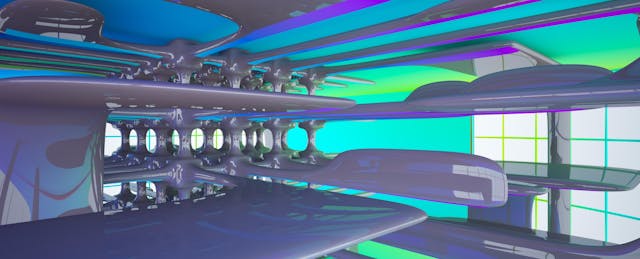When coding shows up in the curriculum of a liberal arts program, its primary purpose is usually pretty obvious: help students get hired. These efforts are often described as attempts to “help non-computer science students build the tech skills required for today’s jobs” so that they are ultimately “more employable.”
The New School, in New York City, is taking a different approach. Its new minor program, called “Code as a Liberal Art,” treats computer science as a tool not just for career preparation, but for creative expression, cultural criticism and “civic awareness for understanding an increasingly computational society,” says Todd Anderson, assistant professor of code and liberal arts at the institution.
In other words, coding isn’t just tacked on. Instead, coding is integrated to explore where it fits in “the broader idea of the liberal arts in the traditional Greek sense,” Anderson explains. “What are the intellectual areas befitting a citizen to know in a modern society?”
To answer that question, faculty at The New School have developed a suite of interdisciplinary classes such as “Anthropology of Networks,” “Generative Media and Artificial Intelligence,” and “An Interactive History of Computers Doing Bad Things,” which covers viruses, botnets and ransomware.
While some courses in the minor incorporate instruction in specific programming languages, others focus more on the history of technology and explore computer-enabled creative processes. Professors may draw on textbooks like “Exploratory Programming for the Arts and Humanities” and also on eclectic “texts” from a variety of media, such as the art websites of Rafaël Rozendaal, the interactive explanatory projects of Nicky Case and the visual essays published by The Pudding.
The classes encourage students to push the boundaries of what it means to complete an assignment and conduct research—which sometimes challenges faculty to “evaluate code-based projects even if they’re not the kind of projects they would complete themselves,” Anderson says.
For example, one course inspired a student to reimagine her poetry thesis as an interactive website. A different course spurred another student to create a digital, choose-your-own-adventure narrative in which certain “wrong” choices trigger a process that crashes the virtual computer that hosts the game.
“It’s a cool artistic approach” to answering the question of “what are the consequences in a fiction?” Anderson says.
As enrollments in majors such as English, history and philosophy decline, some colleges feel pressure to prove their programs have utilitarian value, and introducing coding classes can serve as a signal of relevance to modern life. Indeed, The New School’s new minor also tackles matters that some may consider more practical than poetic.
Yet the program encourages liberal arts disciplines to do so on their own terms.
The courses present “coding as another narrative form in which to understand the world,” says Alyssa Lo, a sophomore who’s planning to complete the minor. “It’s breaking down the idea that code and coding is something that is inherently free and divorced from human biases, looking at different histories of how a lot of these systems came about.”
By subjecting coding to historical and philosophical scrutiny, professors at The New School aim to empower students to use the arts, humanities and social sciences to influence how technology is designed and applied in daily life.
“There’s this pervasive kind of feeling and assumption in society that if you’re not a computer programmer that’s making this kind of software, you’re not qualified to have an opinion of how the system is implemented,” Anderson says. “We want to break through that.”
It’s an approach that suggests the fields of literature, history and philosophy have as much to teach programming as they do to learn from it. That kind of thinking is finding its way back into more traditional coding courses elsewhere, like at Harvard, where computer science and philosophy professors teamed up to embed ethics into the coding curriculum and published open-source course modules to encourage the practice.
No matter where students learn to apply aesthetics and morality to coding, Anderson hopes they will “go into society, be aware, be conversant in how these systems work and be able to impact how computation exists in society going forward.”


